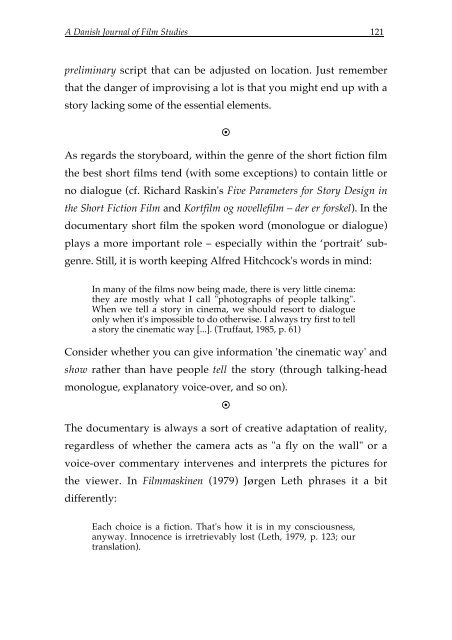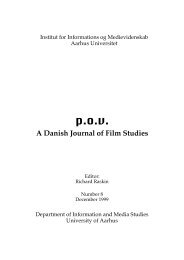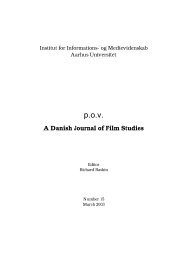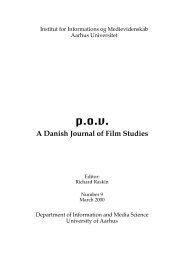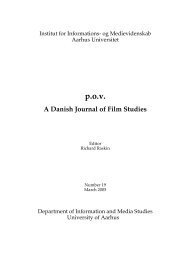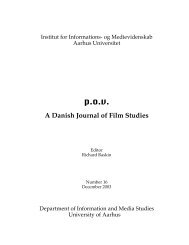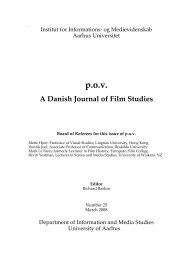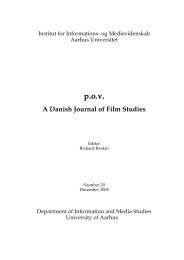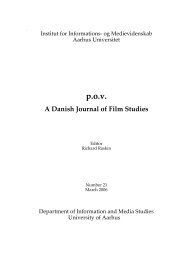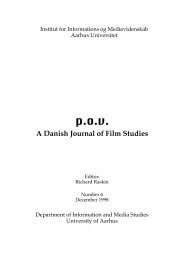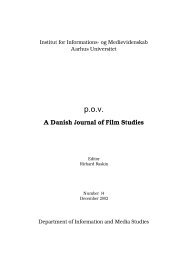The Face of Time - POV - Aarhus Universitet
The Face of Time - POV - Aarhus Universitet
The Face of Time - POV - Aarhus Universitet
Create successful ePaper yourself
Turn your PDF publications into a flip-book with our unique Google optimized e-Paper software.
A Danish Journal <strong>of</strong> Film Studies 121<br />
preliminary script that can be adjusted on location. Just remember<br />
that the danger <strong>of</strong> improvising a lot is that you might end up with a<br />
story lacking some <strong>of</strong> the essential elements.<br />
<br />
As regards the storyboard, within the genre <strong>of</strong> the short fiction film<br />
the best short films tend (with some exceptions) to contain little or<br />
no dialogue (cf. Richard Raskin's Five Parameters for Story Design in<br />
the Short Fiction Film and Kortfilm og novellefilm – der er forskel). In the<br />
documentary short film the spoken word (monologue or dialogue)<br />
plays a more important role – especially within the ‘portrait’ subgenre.<br />
Still, it is worth keeping Alfred Hitchcock's words in mind:<br />
In many <strong>of</strong> the films now being made, there is very little cinema:<br />
they are mostly what I call "photographs <strong>of</strong> people talking".<br />
When we tell a story in cinema, we should resort to dialogue<br />
only when it's impossible to do otherwise. I always try first to tell<br />
a story the cinematic way [...]. (Truffaut, 1985, p. 61)<br />
Consider whether you can give information 'the cinematic way' and<br />
show rather than have people tell the story (through talking-head<br />
monologue, explanatory voice-over, and so on).<br />
<br />
<strong>The</strong> documentary is always a sort <strong>of</strong> creative adaptation <strong>of</strong> reality,<br />
regardless <strong>of</strong> whether the camera acts as "a fly on the wall" or a<br />
voice-over commentary intervenes and interprets the pictures for<br />
the viewer. In Filmmaskinen (1979) Jørgen Leth phrases it a bit<br />
differently:<br />
Each choice is a fiction. That's how it is in my consciousness,<br />
anyway. Innocence is irretrievably lost (Leth, 1979, p. 123; our<br />
translation).


